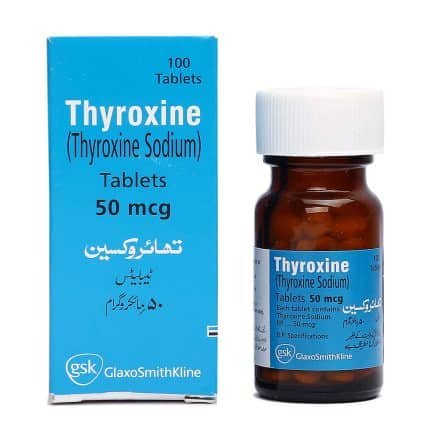Thyroxine Sodium (also known as Levothyroxine Sodium) is a synthetic form of the thyroid hormone thyroxine (T4) that is used to treat conditions caused by an underactive thyroid gland, such as hypothyroidism, goiter, and thyroid cancer.
Benefits:
- Regulates metabolism: Thyroxine sodium helps regulate the body’s metabolism, which helps control weight, energy levels, and body temperature.
- Helps with cognitive function: Thyroxine sodium helps with cognitive function, memory, and concentration.
- Helps with cardiovascular health: Thyroxine sodium helps with cardiovascular health by reducing cholesterol levels, blood pressure and the risk of heart disease.
Side effects:
- Nervousness: Some people may experience nervousness or shaking when taking thyroxine sodium.
- Insomnia: Some people may experience insomnia or difficulty sleeping when taking thyroxine sodium.
- Headache: Some people may experience headaches when taking thyroxine sodium.
- Digestive issues: Some people may experience digestive issues such as nausea, vomiting, or diarrhea when taking thyroxine sodium.
- Allergic reactions: Some people may experience allergic reactions such as rash, itching, hives, or difficulty breathing when taking thyroxine sodium.
- Hyperthyroidism: In some cases, taking thyroxine sodium may cause hyperthyroidism, which is an overactive thyroid gland. Symptoms may include weight loss, rapid heartbeat, and tremors.
It’s important to note that taking thyroxine sodium requires a prescription from a healthcare professional, and it’s important to follow the dosage and schedule as prescribed by your doctor. It’s also important to have regular check-ups and blood tests to monitor the levels of thyroid hormones in your body and to adjust the dosage as necessary.
It’s also important to inform your doctor of any other medications or supplements you are taking as they may interact with thyroxine sodium.




